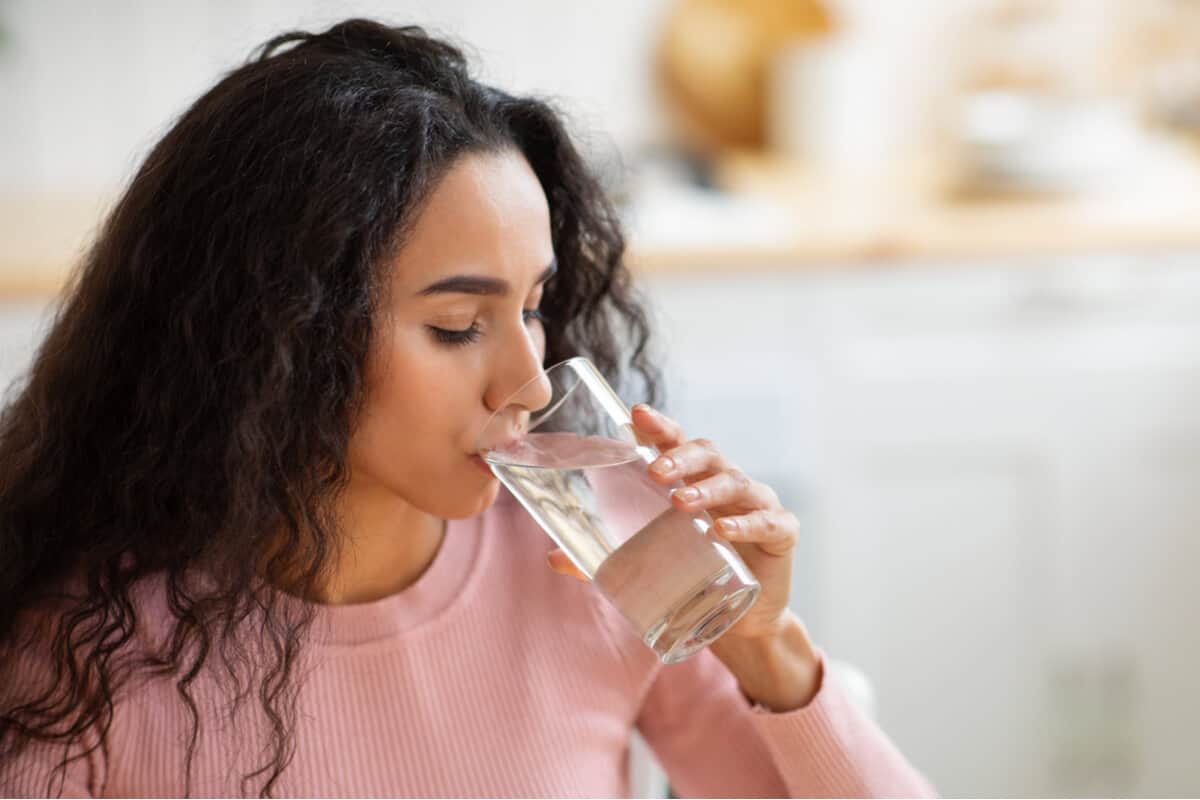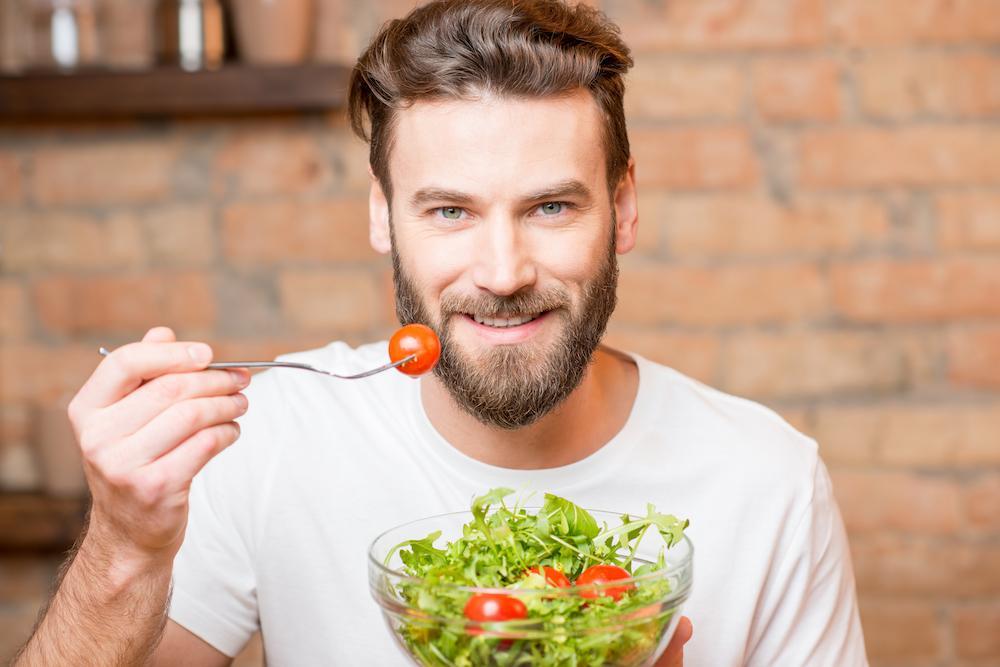Kidney Stones Prevention Diet - Smart Dietary Choices
Adopting a kidney stones prevention diet is crucial for renal health. If left untreated, kidney stones - which are made of crystallized minerals in the urine - can result in severe discomfort and other problems.
Author:Katharine TateReviewer:Karan EmeryFeb 20, 20244K Shares67.9K Views

Adopting a kidney stones prevention dietis crucial for renal health. If left untreated, kidney stones - which are made of crystallized minerals in the urine - can result in severe discomfort and other problems.
Nonetheless, people can greatly lower their chance of getting these bothersome stones by making wise dietary decisions. This article explores the nuances of a diet for preventing kidney stones, providing information on foods and lifestyle choices that can protect renal health.
What Is A Kidney Stone?
A kidney stone, medically known as nephrolithiasis or renal calculi, is a hard deposit of minerals and salts that form in the kidneys. These stones can vary in size, ranging from as small as a grain of sand to as large as a golf ball. Kidney stones develop when certain substances in the urine, such as calcium, oxalate, and phosphorus, become highly concentrated and form crystals.
The process of stone formation typically begins when these crystals aggregate and stick together, eventually forming a solid mass. The stones can remain in the kidneys or travel down the urinary tract, causing various degrees of pain and discomfort.
Importance Of Prevention
Kidney stones are small, hard deposits that can cause severe discomfort and sometimes even difficulties, thus it is imperative to prevent them. The importance of preventing kidney stones is highlighted by the following various factors.
Pain And Discomfort
Kidney stones can lead to intense pain, commonly described as one of the most severe pains a person can experience. The pain typically occurs as the stones move through the urinary tract or obstruct the flow of urine. Preventing the formation of these stones helps avoid the associated agony and discomfort.
Avoiding Recurrence
Individuals who have experienced kidney stones are at an increased risk of recurrence. By adopting preventive measures, such as dietary changes and lifestyle adjustments, individuals can minimize the likelihood of developing new stones and the associated complications.
Preventing Complications
In addition to pain, kidney stones can lead to complications such as urinary tract infections, kidney damage, and even systemic infections in severe cases. Prevention measures are crucial for reducing the risk of these complications, which can have long-term consequences on kidney health.
Quality Of Life
Living with the constant threat of kidney stones can impact an individual's quality of life. Fear of recurrent pain and the limitations imposed by stone-related complications can be alleviated through proactive preventive strategies.
Healthcare Costs
The treatment of kidney stones, especially if recurrent or leading to complications, can result in substantial healthcare costs. Preventing the formation of kidney stones can help reduce the economic burden on both individuals and healthcare systems.
Promoting Overall Kidney Health
Kidney stones are indicative of an imbalance in the urinary system. Adopting a kidney stone prevention diet and other healthy habits not only reduces the risk of stones but also contributes to overall kidney health, promoting optimal functioning of these vital organs.
Types Of Kidney Stones
- Calcium oxalate stones - These are the most prevalent type of kidney stones and are primarily composed of calcium oxalate. levels of oxalate in the urine can lead to the formation of these stones.
- Calcium phosphate stones - Composed of calcium and phosphate, these stones are less common than calcium oxalate stones. Often associated with conditions causing alkaline urine, such as renal tubular acidosis.
- Uric acid stones - These results from an excess of uric acid in the urine, which can crystallize and form stones. High intake of purine-rich foods (found in certain meats and seafood) and conditions like gout can contribute.
- Struvite stones - Composed of magnesium, ammonium, and phosphate. Typically associated with urinary tract infections (UTIs) caused by specific bacteria that produce ammonia.
- Cystine stones - Cystine stones are rare and are caused by a genetic disorder called cystinuria, composed of the amino acid cystine. Individuals with cystinuria have a genetic predisposition to excrete too much cystine in their urine.
Kidney Stones Prevention Diet
- Hydration - Drink an adequate amount of water throughout the day. Aim for at least 8-10 cups (about 2-2.5 liters) of water daily. Adequate hydration helps dilute urine and prevents the concentration of minerals that can lead to stone formation.
- Calcium-rich foods - Include sources of dietary calcium in your diet, such as low-fat dairy products, fortified plant-based milk, and leafy green vegetables. Adequate calcium intake from food sources can help bind with oxalates in the intestines, reducing the risk of calcium oxalate stone formation.
- Low oxalate foods - Limit high-oxalate foods, including beets, chocolate, nuts, tea, and certain fruits and vegetables like spinach and rhubarb. While restricting oxalate intake is important, it is not necessary for everyone, and a balanced approach is recommended.
- Limit sodium intake - Reduce the consumption of high-sodium foods, as excessive sodium can increase calcium levels in the urine, contributing to stone formation. Be mindful of processed foods, canned soups, and restaurant-prepared meals, which often contain high levels of sodium.
- Moderate animal proteins - Limit the intake of animal proteins, such as red meat, poultry, and fish, as they can increase the levels of uric acid and calcium in the urine. Opt for plant-based protein sources like legumes, tofu, and nuts.
- Citrus fruits and citrate - Citrate, found in citrus fruits like lemons and oranges, can help prevent certain types of kidney stones. Include citrus fruits or drink diluted citrus juices to boost citrate levels.
- Potassium-rich foods - Consume potassium-rich foods, including bananas, oranges, potatoes, and leafy greens, as potassium can reduce the excretion of calcium in the urine.
- Magnesium-rich foods - Magnesium may help prevent the formation of calcium oxalate stones. Incorporate magnesium-rich foods like whole grains, nuts, and seeds into your diet.
- Vitamin B6 - Adequate intake of vitamin B6 may reduce the risk of oxalate stone formation. Include sources such as poultry, fish, and bananas in your diet.
- Balanced diet and portion control - Adopt a well-balanced diet that includes a variety of nutrient-dense foods. Practice portion control to maintain a healthy weight, as obesity is a risk factor for kidney stones.
Kidney Stones Prevention Diet - FAQ
What Foods Keep Kidney Stones Away?
Eat and drink calcium foods such as milk, yogurt, and some cheese and oxalate-rich foods together during a meal. The oxalate and calcium from the foods are more likely to bind to one another in the stomach and intestines before entering the kidneys. This will make it less likely that kidney stones will form.
What Dissolves Kidney Stones Fast?
Staying hydrated can help pass kidney stones faster. Certain substances, including apple cider vinegar and lemon juice, may help dissolve kidney stones, making them easier to pass. Drinking plenty of fluids can help pass kidney stones and prevent new stones from forming.
What Can Destroy A Kidney Stone?
A urologist can remove the kidney stone or break it into small pieces with the following treatments: Shock wave lithotripsy. The doctor can use shock wave lithotripsy link to blast the kidney stone into small pieces. The smaller pieces of the kidney stone then pass through your urinary tract.
Final Thoughts
A kidney stones prevention diet is crucial, and its significance cannot be overemphasized. Making informed dietary decisions can enable people to take charge of their renal health and reduce their chance of uncomfortable kidney stones.
Every decision you make affects the kidneys' general health, whether it's drinking plenty of water, limiting your intake of foods high in calcium, or eating a balanced diet full of fruits and vegetables. People can create a future free from the pain and consequences related to kidney stones by acquiring the necessary information and making a commitment to eating healthily.

Katharine Tate
Author

Karan Emery
Reviewer
Latest Articles
Popular Articles
